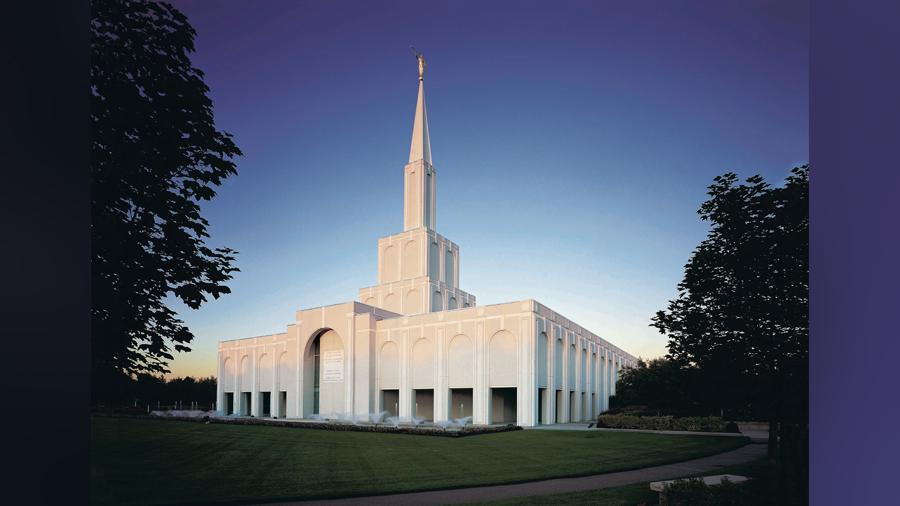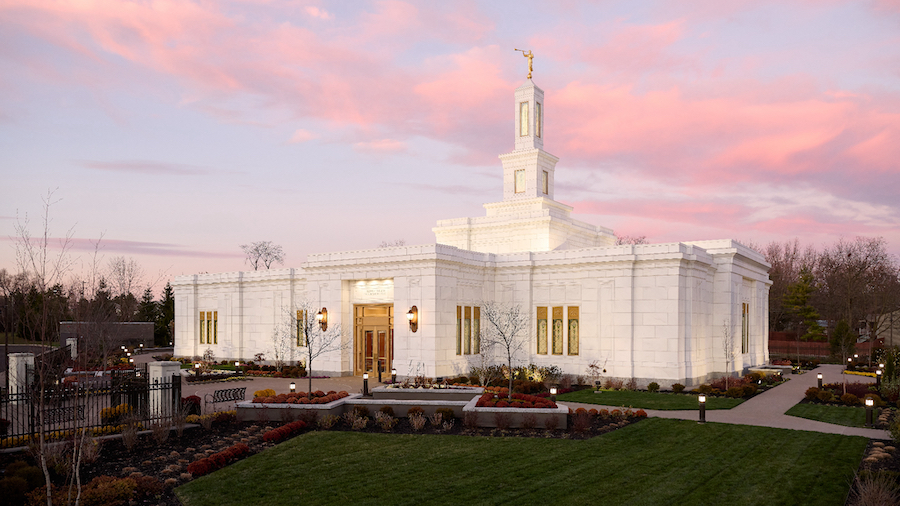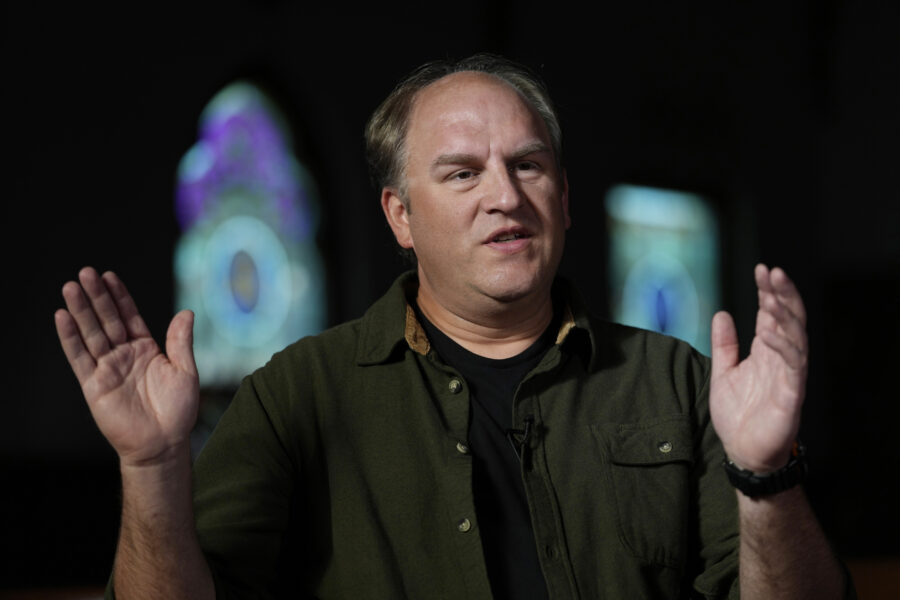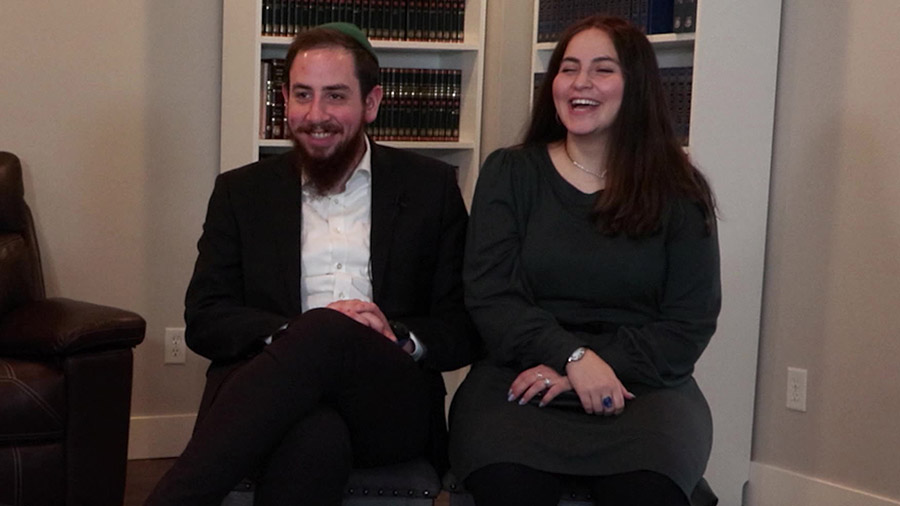RELIGION
ChatGPT can write sermons, but religious leaders say they lack ‘a soul’
Apr 11, 2023, 11:06 AM | Updated: 11:07 am
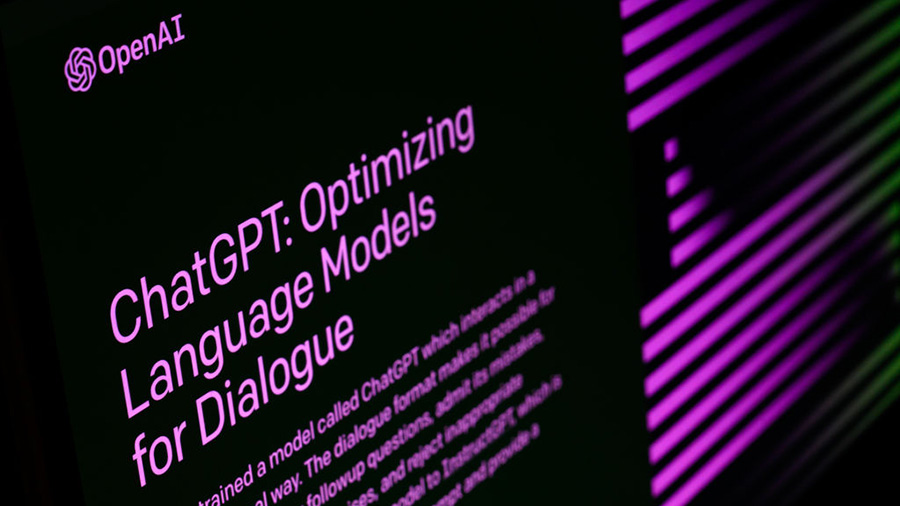
LONDON, ENGLAND - FEBRUARY 03: In this photo illustration, the welcome screen for the OpenAI "ChatGPT" app is displayed on a laptop screen on February 03, 2023 in London, England. OpenAI, whose online chatbot ChatGPT made waves when it was debuted in December, announced this week that a commercial version of the service, called ChatGPT Plus, would soon be available to users in the United States. (Photo by Leon Neal/Getty Images)
(Photo by Leon Neal/Getty Images)
(CNN) — The future of artificial intelligence promises technology with a human touch. But is it human enough to deliver a convincing spiritual message?
Pastors and rabbis have recently discovered that ChatGPT, an AI language learning model that can spit out passable prose with just a few prompts, is not that bad at creating sermons — a cornerstone of worship services across many religions.
Historically, these orations are based on generations of knowledge, keen textual analysis and scholarship, combined with the unique charisma and experiences of each worship leader. Sermon writing is considered an art. A divine calling, even.
Seeing a computer approximate similar works in mere seconds has led faith leaders to wrestle with an intriguing problem: Can AI replicate a truly human, spiritual message? And if it can, is the computer just that good, or does the human message need some work?
What an AI sermon sounds like
In December 2022, Rabbi Joshua Franklin gave an unusual message during a service at the Jewish Center of the Hamptons in East Hampton, New York.
“I’m going to plagiarize a sermon,” he told his congregation. “And you have to guess who wrote it.”
Franklin then delved into an illumination on the Parashat Vayigash, a portion of the Torah that tells the story of a reconciliation between brothers.
“This is a powerful lesson for all of us, as it shows the importance of being willing to draw near to others even when it’s difficult, in order to build intimacy and connection,” he went on.
At the end of the roughly two minute sermon, Franklin revealed the real author to murmurs and scattered applause: ChatGPT.
“You’re clapping,” he said. “But I’m terrified!”
While Franklin added that he gave the language learning model a very specific prompt, and could see details in the work that wouldn’t pass muster with a seasoned scholar, the experiment was received with equal parts awe and trepidation. Could the work of a faith leader — so intimately tied to the human experience — eventually be eclipsed by a computer?
How AI language modeling works
Popular entertainment does little to quell our human fears of an AI-generated future, one where computers achieve consciousness, ethics, souls, and ultimately humanity. In reality, artificial intelligence tools like ChatGPT are just convincing mimics.
When CNN asked how it works, ChatGPT supplied the following response:
“ChatGPT works using a deep learning algorithm called a transformer neural network. It was trained on a massive corpus of text data from the internet, books, and other sources. During training, the model learned to identify patterns in the data and use them to generate text that resembles human language.”
“The way ChatGPT creates an original response is by using a technique called language modeling,” it continued. “Language modeling is a task where the model is trained to predict the probability of the next word in a sentence given the previous words.”
Ultimately, the response may sound human — maybe even human enough to satisfy a crowd expecting religious enlightenment.
Some experts say it’s still evident there’s something missing.
“It lacks a soul — I don’t know how else to say it,” Hershael York, a pastor and theology professor in Kentucky told the Associated Press.
However, because ChatGPT is “trained on,” or essentially fed, innumerable pieces of text, it can do some of the work of a scholar, referencing any sacred text it’s trained on in a matter of seconds.
When asked what kinds of texts it would refer to for a Christian sermon, ChatGPT was at first hesitant, stating that as an AI language model, it did not “hold personal beliefs or religious affiliations.” With a slightly altered inquiry, it provided the following:
“When a language model like ChatGPT is asked to create a Christian sermon, it would typically rely on its training data and knowledge of Christian theology and practice. This includes a broad range of Christian texts, such as the Bible, commentaries, theological works, and books of sermons by other preachers.”
“To create a Christian sermon, the language model would typically be given a specific topic or theme to focus on,” it continued. “It would then search through its vast database of knowledge to find relevant information and examples related to that topic. This might involve identifying relevant Bible passages, theological concepts, and historical or cultural contexts that are related to the topic.”
How a human sermon comes together
Sermon writing is a core skill for most worship leaders. Effective sermonists follow in the footsteps of celebrated faith leaders like Martin Luther King Jr. and Ozjasz Thon.
“The sermon has become the climactic element in a lot of denominations’ services. A sermon is not simply teaching. It sets a precedent for understanding scripture correctly. And there’s also this moment of exhortation, of asking what it says about our own lives,” says Stu Strachan, an ordained Presbyterian pastor and founder of The Pastor’s Workshop, a resource for Christian sermons and teachings.
“There’s also more value added to a sermon as culture becomes more secular. If churches want to grow, they have to connect their teachings to modern life and modern problems,” he adds.
In fact, sermons are so important that there is a thriving industry to provide tools to worship leaders to make the craft a little less taxing.
“The reality is, unless you’re a pastor you have no idea what it’s like to be a pastor,” Strachan tells CNN. “It sounds obnoxious, but it’s true, and it calls upon every aspect of who you are as a person. You are always on call, and more and more roles are foisted upon pastors. They’re not just studying God’s word, praying, visiting the congregation, they’re expected to be CEO, CFO types who cast vision, manage staff, create strategic partnerships. There is a lot of burnout.”
However, some methods of lessening the burdens can stretch the ethics of the position. Sermon ghostwriters aren’t uncommon, and things can get dicey when a preacher doesn’t disclose where they got their brilliant ideas.
“I think some traditions value originality more than others. That being said, if you get a ghost writer, I think most pastors would heavily frown on it,” Strachan says. “However, from a practical money perspective, that’s not something a lot of pastors can do. The average church congregation in the US is around 100 people, and the funds simply aren’t there to pay someone to do that work for you.”
Where AIs — and humans — fall short
ChatGPT is free for the public to use, so it’s easy to experiment with its possibilities — and its limitations. Basic inputs like “Write a sermon about X topic” return basic results with very little detail or insight. The model returns more sophisticated results when the requests include detailed themes, specific text markers and the addition of common narrative devices like personal anecdotes, cultural references and quotations.
In other words, the quality of ChatGPT’s output is only as good as the prompts it receives. Even then, it has some critical shortcomings: ChatGPT and other language learning models sometimes return inaccurate, incomplete or biased information; a weakness that is stated clearly on ChatGPT’s interface.
Ken Sundet Jones, a professor of theology and philosophy at Grand View University in Des Moines, Iowa, summarized the other shortcomings he’s seen in an article for the Christian nonprofit 1517.
“Even if Pastor A.I. ChatGPT were able to move beyond the sermon as a dispensation of information, it would still miss the homiletical boat because it could only operate in the realm of a hypothetical audience,” he writes. “There’s no particularity to what it produces and, thus, no ‘for you’ -ness to it.”
Jones argues that the fact an AI is not human, and is not burdened at its very essence by the weight of life and death, means it cannot predict nor create something to soothe the human soul.
However, spiritual nourishment is the result of preaching at its best. Surely, like any other rhetorical art, sermon writing can be a lazy, inauthentic, and impersonal pursuit even when it’s also done by a human.
A Twitter user illustrated this to amusing effect when she asked ChatGPT for a devotional loaded up with Christian-ish buzzwords like “daddy God,” “covet your prayers,” “hedge of protection,” and “instruments of God.”
The result was chaotic salad of platitudes and vague advice.
“I know AI is dangerous because this reads like something I absolutely would’ve heard from a Christian influencer this week,” someone jokingly replied.
Exercises like these have led some faith experts through another line of logic: AI sermons lack an essential humanity. If they can produce something that can pass for someone’s actual message, perhaps it, too, lacks an essential humanity.
“Creativity requires independence, insight and imagination, all abilities that ChatGPT lacks,” writes Chaim Steinmetz of the Jewish Journal. “But ChatGPT is not alone in pushing platitudes and humbug; many humans do so as well. If we find that our own opinions sound a lot like ChatGPT, that is not a flaw in it. Rather, it is the product of our own failings. Like a parrot, ChatGPT forces us to hear what we actually sound like.”
Regardless of what it can create, there is one more element of strong religious rhetoric that artificial intelligence knows it will always lack: an actual human to deliver the message.
“It’s worth noting that while a language model like ChatGPT can provide an approximation of a sermon, it cannot replicate the full experience of a live sermon delivered by a human preacher,” ChatGPT said during a conversation about how it produces sermons. “The human element of preaching, including voice inflection, emotional expression, and audience interaction, is an important part of the preaching experience that a language model cannot replicate.”
The-CNN-Wire™ & © 2023 Cable News Network, Inc., a Warner Bros. Discovery Company. All rights reserved.


